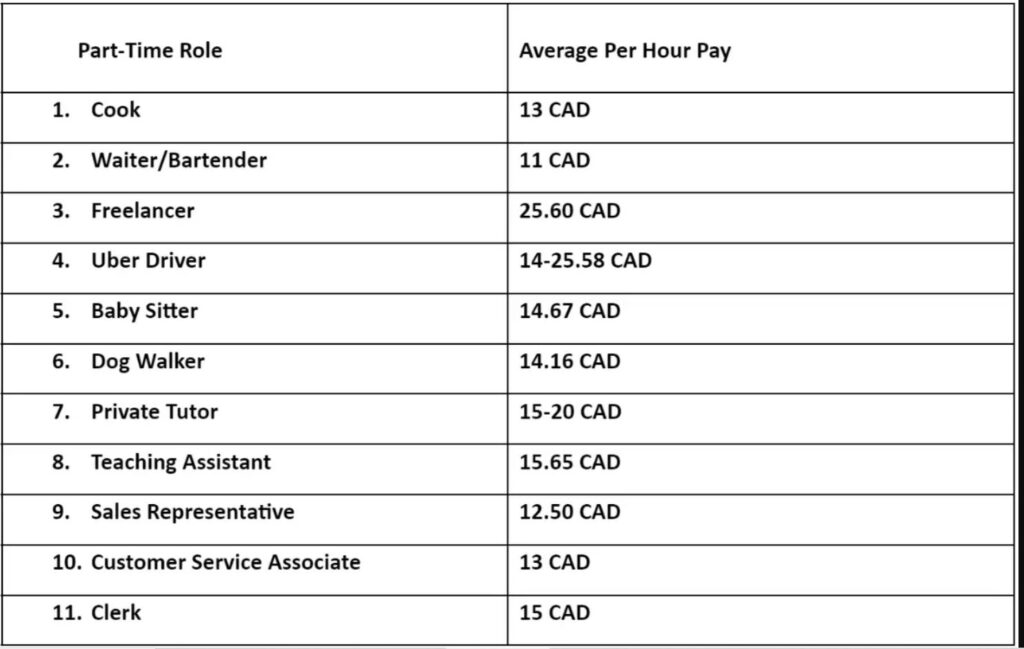Canada has become a sought-after destination for international students due to the high quality of education, safety, and welcoming environment. In addition to the academic benefits, international students in Canada have the opportunity to work and gain valuable work experience while studying. However, international students need to be aware of the immigration laws and regulations to avoid risking deportation. This article will outline job opportunities for international students in Canada without risking deportation.
On-campus employment
International students in Canada with a valid study permit can work on-campus without a work permit. On-campus employment includes working for the university, college, or any other organization located on campus. On-campus employment is limited to 20 hours per week during regular academic sessions, and full-time during scheduled breaks such as winter and summer holidays. On-campus employment is a great way to gain Canadian work experience, earn money, and interact with Canadian students.
Off-campus employment
International students in Canada can work off-campus without a work permit for up to 20 hours per week during regular academic sessions and full-time during scheduled breaks. However, students need to obtain a work permit before starting off-campus employment. To obtain a work permit, students need to meet the following criteria:
- Have a valid study permit
- Be enrolled in a full-time program at a designated learning institution
- Have been studying full-time for at least six months
- Have a Social Insurance Number (SIN)
Students can work in any field and for any employer off-campus, provided the job does not fall under the list of ineligible occupations, such as exotic dancing, escort services, and erotic massages. Students must also ensure that the job does not interfere with their academic studies.
Co-op or internship programs
Many Canadian colleges and universities offer co-op or internship programs that allow international students to work in their field of study. Co-op or internship programs are a great way to gain practical work experience and earn money while studying. Co-op or internship programs are also a great way to network with potential employers and increase the chances of getting a job after graduation. To participate in a co-op or internship program, students need to obtain a co-op or internship work permit. The co-op or internship work permit is a separate work permit and does not count towards the 20 hours per week limit.
Post-Graduation Work Permit (PGWP)
The Post-Graduation Work Permit (PGWP) allows international students who have graduated from a Canadian institution to work in Canada for up to three years. To be eligible for a PGWP, students must meet the following criteria:
- Have completed a full-time program of at least eight months at a designated learning institution
- Have a valid study permit when applying for the PGWP
- Have graduated from a public or private post-secondary institution, a private secondary or post-secondary institution in Quebec, or a Canadian private institution authorized by provincial or territorial statute to confer degrees
- Apply for the PGWP within 180 days of receiving a written confirmation that they have met the requirements for completing their program of study
- Have a Social Insurance Number (SIN)
The PGWP is an open work permit, which means that graduates can work for any employer in Canada and in any field. The PGWP is a great way to gain Canadian work experience, network with potential employers, and increase the chances of obtaining permanent residency.
Working Holiday Visa
The Working Holiday Visa is a program that allows young adults aged 18-35 from certain countries to work and travel in Canada for up to two years. The Working Holiday Visa is issued under the International Experience Canada (IEC) program, and the number of visas issued each year is limited. The Working Holiday Visa is a great way to gain Canadian work experience, travel and explore the country, and meet new people

